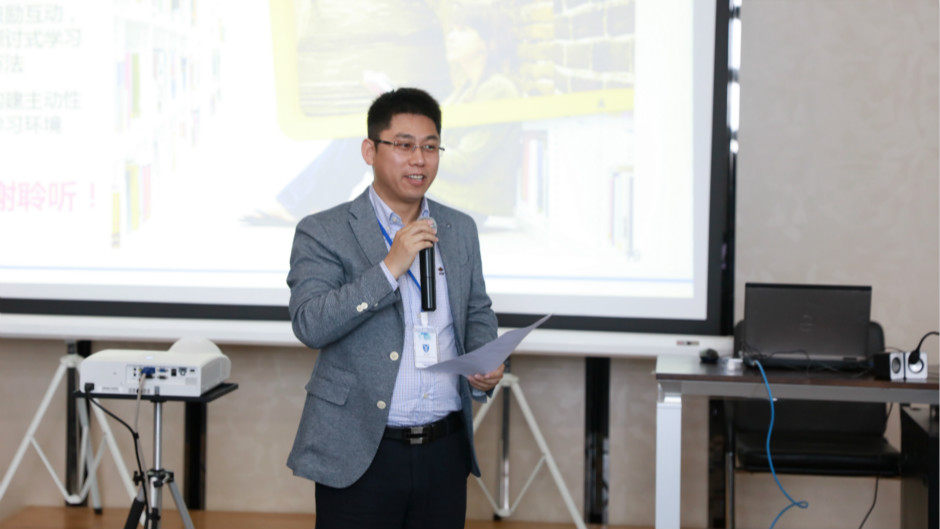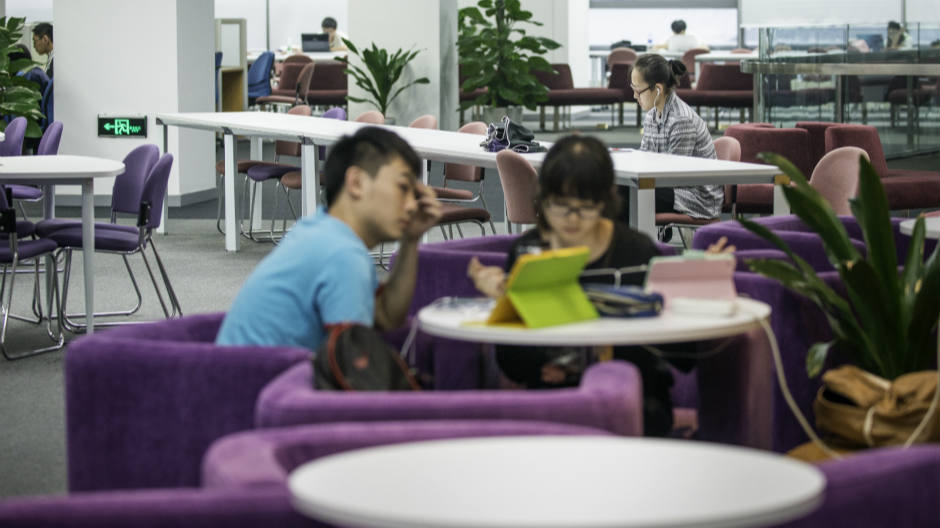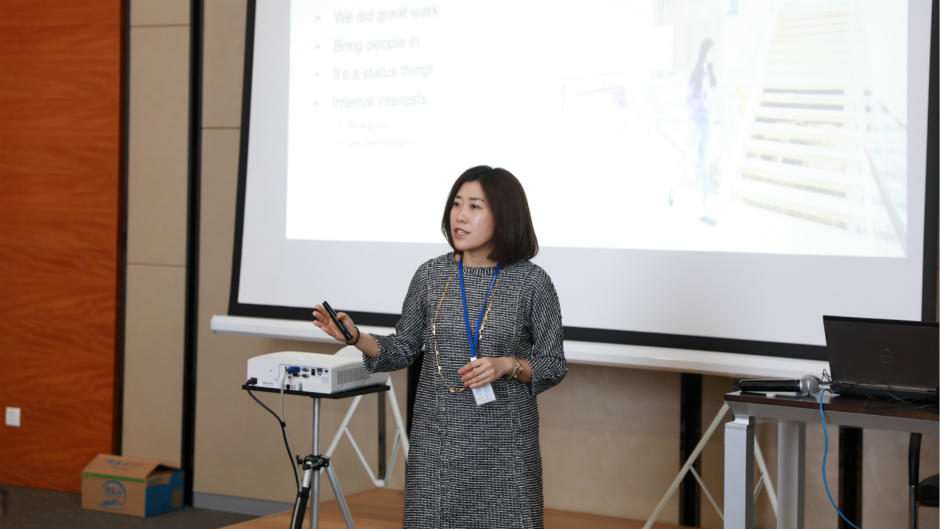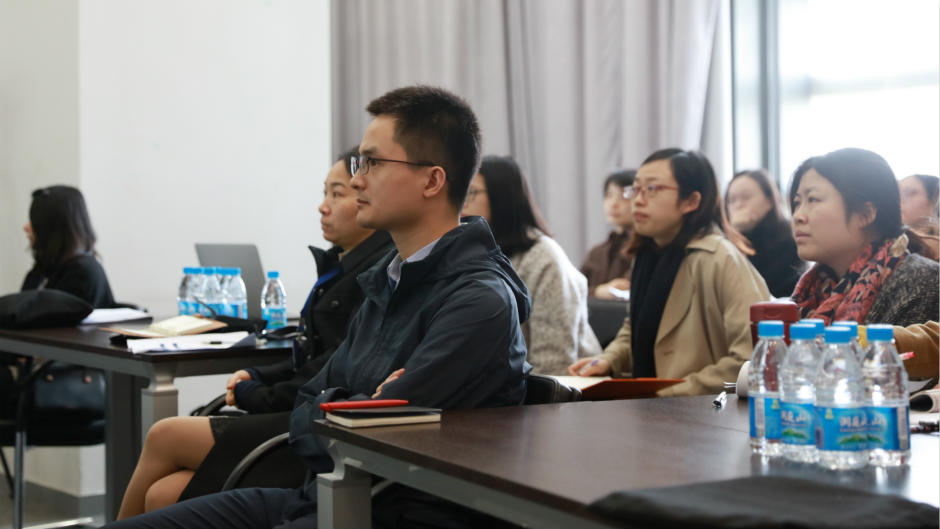03 Apr 2017
The Association of Sino-Foreign Joint Venture University Libraries held its annual conference at Xi’an Jiaotong-Liverpool University on 31 March.
More than 80 attendees, including library directors, librarians and external observers from seven Sino-Foreign cooperation universities across China shared their experiences and ideas about new academic library operations while discussing current challenges and opportunities.

Dr Xin Bi, deputy director of XJTLU’s Centre for Information and the University Librarian said: “The libraries of these seven universities are international and academic, which makes them very unique. Through sharing and reviewing each of our experiences, we believe we are presenting the overall development of Sino-Foreign libraries in China.”
Dr Bi presented the case study and experience of XJTLU Library based on user behavioural studies into library operations and management. This approach combines observing student behaviour while learning, combined with data collection and analysis of user behaviour, to better understand and anticipate user needs and provide quality and timely service. This practice is in line with XJTLU’s core value of being “student-centred”.
As a member of many Asia-Pacific library strategy consulting committees, Dr Bi commented: “Seeing examples and cases across the world, I’m confident to say that XJTLU’s concept and practice are leading the way in library management .”
China’s most influential news agency, Xinhua, has published an article titled “Most considerate library in Suzhou” which stated: “All floors are covered by noise minimising carpet, there is Wi-Fi connection throughout, every table has a power plug for laptops, there are separate areas to make and receive phone calls and eat as well as free printing available for XJTLU students and staff.”


Conference participants highlighted trends across the Sino-Foreign library sector.
Jia Zhang, library director of the Chinese University Hong Kong, stated that the current trend for university libraries is to be more focused on customer service and experience.
He added that this trend means the design for a library should be more adaptable to students’ needs and preferences. Its functional design should take into account academics and teaching staff, and include more private research and discussion rooms.
Xiaojing Zu, the library director of Shanghai New York University, shared her experience of user communication and marketing their library: “We have a wide range of library resources and a comprehensive service system. The next step, is to promote these resources and services to increase visitors to the library.”

Hong Xu, the library director of Kunshan Duke University shared their experiment and achievement in incorporating information literary component into undergraduate programme curriculum. She went on to add that during this data era, it is essential to equip students with skills in data searching selecting for their learning and research.
“To include information skills such as data related skills into the curriculum shows an official recognition of a library’s role in learning and teaching,” added Dr Bi.
Library directors, Chunmei Yan (University of Nottingham Ningbo China), Fung Ying Cham (Beijing Normal University - Hong Kong Baptist University United International College) and Charles Greenberg (Wenzhou Kean University) delivered presentations on the topics of library development trends and sustainability, archive development, teaching and index service and the smart library.
The chief editor of the Directory of Open Access Journals, Dr Tom lijhoek gave a presentation on opportunities for improved quality assessment of research and journals in an open access world.

At this year’s conference, a working committee for future cooperation and communication focused on library resource development was set up.
Dr Bi concluded: “Sino-foreign universities are a very new entity in China, therefore the organisation and operation mechanism of their libraries are also at the stage of discovering and exploring.”
Compared with peer universities within and outside China, we are all facing new challenges and there is no precedent for us. In this circumstance, experience sharing and enhanced communication is in our mutual interest at this time.”
03 Apr 2017








